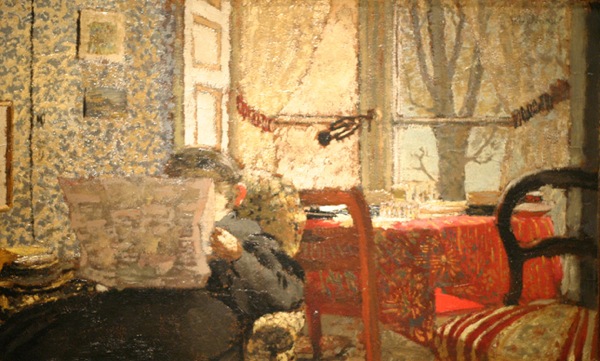Dear Evelyn you forgot to sign out of your computer in the computer lab…

Hello Evelyn. How are you? I haven’t seen you in a few days. The other day I saw someone and we talked about you and how you like to play settlers of catan. That’s a really good game. I used to play with my roommates, but they would always beat me. Anyway, I was wondering if you could post something on HTMLGIANT for me? It’s a story I wrote for a website called Urlesque. The story is about Emma Watson. Everything in the story is non-fiction except for the title. I feel kind of dirty asking you to post a link to my story because the reason I want you to post a link is purely monetary. The editor of Urlesque said if the story gets a lot of views then I will make more money. I don’t want to want to make a lot of money but it is tough not to want to make money so I’m asking you for a favor to help me make money. If you don’t want to post a link then that’s fine. I understand. I am sort of using you for my own personal gain. The idea of using your name to help me make AOL pay me is not something that feels good (p.s. Urlesque is a subsidiary of AOL). In my head I have this distorted vision that by doing this I am taking my first step up the corporate ladder. I am sort of scared of the idea that AOL now controls a segment of my brain and can make me do cocaine even though I’d rather not do cocaine. Anyway, here’s a link to the story: my date with emma watson.
What is Experimental Literature? {pt. 4}
Because Roxane’s recent post on Davis Schneiderman’s novel Blank engaged so thoughtfully with my ongoing “What is Experimental Literature” series (pt. 1, pt. 2, pt. 3), I decided to postpone my previously planned posting (which deals with the critical theory of Roland Barthes), and instead directly address Schneiderman’s novel and what I perceive to be Roxane’s basic concern about it: namely, what to do with it.
Unfortunately, my series on experimental literature offered Roxane no help in dealing with Schneiderman’s novel. The reason, I would argue, is that Blank moves out of the boundary zone of experimental literature and into the boundary zone of conceptual literature. The difference between those categories seems just as significant as the distinctions between experimental and conventional literature, and therefore require yet another set of heuristics.
I must say, I love the problems that conceptual literature presents to my attempts at understanding experimental literature. For one thing, it works to disrupt any notion of binary opposition: no longer can anyone mistakenly assume that I’m presenting an either/or when I discuss the relationship between experimental and conventional literature — the spectre of conceptual literature invalidates any such assumption by demonstrating the possibility of other potential categories. For another thing, I think conceptual literature can help to recalibrate our expectations and assumptions about experimental literature.
What follows is my attempt at answering what I perceive to be Roxane’s query regarding Schneiderman’s novel, as well as an attempt to grapple with the differences between conceptual and experimental works.
Does suffering over a manuscript make it more “authentic” or “better”? What about taking a long time to write it? If yes, why? If not, why not? Help me destroy some exhausted and exhausting writer myths, friends. Please.
Go Right Ahead: It is Friday
I broke my life.
But childhood prolonged. It becomes a hell.
My eyes and hearing are supernormal. I weigh 129 pounds. You can see what a diet of beer and light wine has made of me.
Do you understand the stopgap quality of hatred and rage?
The bridge besides the bridge of sighs.
Listening to the prisoned cricket.
And the hissing hair.
To drink dark beer with Mrs. Grant at four in the afternoon, under an umbrella, is a pleasure and a comfort.
Another entire bottle? I don’t know—let me drink on that.
See, it erases memory, as in grief, but arouses desire. So begins the cycle.
Stella spells ill.
To hell with that poem!
Honeysuckle blows by the granite.
In Defense of the Democratic, Therapeutic Workshop

This is in response to Kyle’s comment on Sean’s post. Or, maybe in reaction. In the comment thread, I responded to part of what Kyle said, but the rest of my response veers pretty far from what Sean was asking, so I’m going to develop it here instead.
I want to take up the ideas of workshop as democracy and workshop as therapy session. What does it mean, really, to say you don’t like those ideas? I should just let Kyle answer that first, but I’m going to say what I make of those terms first.
Workshop as democracy: If I was the one saying that, I would mean that a workshop is a chance to hear from a group of the kind of people who would be your readers. With nobody’s reading being privileged, including the professor’s, who is just one reader. The professor certainly is there to teach how to respond to peer work, how to read and respond sensitively, but hers shouldn’t be the final word. Bruce Covey was telling me last night that he never speaks during the workshops he teaches. Each workshop, a student facilitates. I think this is a wonderful idea. Sure, workshops can work beautifully in other ways, too, but I think this is one good way. This can come down to tiny details. It’s great to know whether 10% or 80% of readers don’t catch a certain reference. To be in control of that, of how obscure the references are. I prefer the perhaps squishy sounding term “focus group” to “democracy” for this function (not the only function, but one function) of a workshop.
Workshop as therapy session: This is thrown around a lot, always negatively. Workshop shouldn’t be therapy. I think there are two problems with this. One, what kind of therapy are we talking about. Substitute “person” in what Kyle says at the end. “…from there, to help a [person] do the thing the [person] really wants to do as powerfully and truly as the [person] can.” That can be (should be?) the goal of therapy, no? When I went to therapy, that’s what I was looking for, and I found it. This happened in many ways and on multiple levels, but I’ll use an example that has to do with writing. Toward the end of my course of therapy, my main problem was that I was behind on my thesis. (After I finished, my therapist said it was time I set new goals or quit therapy. I quit, and we kept in touch.) My therapist said, how about writing five pages a day (I think she said three at first, but I explained I wouldn’t make the deadline that way). I started writing five pages a day. I finished the thesis. I sent the critical component of the thesis–which was never workshopped–to someone I interviewed for it. He wanted me to adapt it for the magazine he edits. Made $1500 for the article. Didn’t pay for my whole course of therapy, but it more than covered the session where she said to just write 5 pages a day. Why shouldn’t a workshop do this?
2 Teach or not 2 Teach
What authors are the most accessible to being taught, especially to young writing students (as in taking their first classes, not age)? What authors are not?
Example. T.C. Boyle. Very teachable. Consistently uses structures easy to graph/visualize, massive layers of basic CW language techniques, always some intent at theme. Now you can argue the merits of his fiction, but that isn’t my point. My point is the merits of the fiction as pedagogically useful.
(You could take this one story and teach a semester of Intro CW: Freytag’s, quest narrative, suspense, immediacy, imaginative prose, precise verbs, unreliable narrator, suspense, POV, etc.)
Diane Williams. Not so great to teach. The voice, the thought, the paroxysms of perfect, and perfectly odd, sentences—you could smother a young writer, you could lead them to a cliff’s edge and accidentally push them off. (Yes, I know Miss Flannery O’Connor, this would do the world a favor, etc.)
Now I generalize, I generalize, so don’t go all sack of hammers. And I’m not saying don’t read any and every writer (OK, not Jewel). And, with upper level classes, I think the ratio switches—Personally, I start bringing in writers I wouldn’t teach earlier (like Diane Williams, Barry Hannah, Gertrude Stein, etc.) and I start removing T.C. Boyle. And I’m not saying you need to take any writing classes, ever—this question is couched in context. OK, enough with the disclaimers. WTF?
I just wonder if you have your own choices: A writer perfect for the teaching of creative writing to young writers, a writer you might want to avoid? I’m sure many of you have had experiences, as student or instructor. What authors glowed, what thunked?
When I was a painter

“When I was a painter” is a Breeders song, and it is also the title of this, though this is less about when I was a painter than “how I became a writer,” quoted because just saying it aloud inside my muggy mouth makes me somewhat nauseous and sorry for this readership, whose patience towards personal essays is confounding. See? I just used a big word.
When I was a painter I painted scenes across the street, a kind of pedestrian voyeurism without any boners; just simple things like a street lamp’s effect on a wall; the inadvertent faint line of a curb; or how shadows are never dark, just comprised of shapes of darker light. I had paint splotches all over my jeans like Basquiat, though only he got laid.
When I was a painter I looked at Pierre Bonnard, Edouord Vuillard, and Giorgio Morandi. They were all sensitive men, perhaps “fags” in today’s world — fags with wives, OCD tendencies, and a slow silent life somewhere in Europe. I went to Europe once. The food was okay, the weather was bad. Painting is beautiful because there is no talking, only looking, and looking again.
If love can be a brainworm then I would like to talk about my brainworms
 I met someone who gave me brainworm recently. I used to think of brainworm as something that I would own and hold. I thought, “The person who gives me brainworm will be mine and I will be theirs.” The new brainworm I found does not feel like something I need to own or hold. It is a thought that continues to eat wherever it wants to eat. I enjoy the feeding of this thought. The feeding is endless. I could let this feeding continue the rest of my life and I would be happy even if I never saw the person who gave me the brainworm. I am so full of brainworm that I am sick. It seems stupid that I could be so happy about having something as dumb as a brainworm.
I met someone who gave me brainworm recently. I used to think of brainworm as something that I would own and hold. I thought, “The person who gives me brainworm will be mine and I will be theirs.” The new brainworm I found does not feel like something I need to own or hold. It is a thought that continues to eat wherever it wants to eat. I enjoy the feeding of this thought. The feeding is endless. I could let this feeding continue the rest of my life and I would be happy even if I never saw the person who gave me the brainworm. I am so full of brainworm that I am sick. It seems stupid that I could be so happy about having something as dumb as a brainworm.
Tonight I ate some cheese. I was one of the last people in a room eating cheese. An elderly woman who reminded me of my grandmother began talking. She talked about the time she saw William S. Burroughs read. She went to the reading because she wanted to ask him a question. A lot of people at the reading just wanted to take William S. Burroughs out and get him drunk to see what would happen. She never asked the question she wanted to ask because she didn’t know how to formulate it. I continued to eat cheese and listen. The elderly woman said, “If I had a chance to ask William S. Burroughs a question now I would ask him: but what about love?”
My roommate just got home. He said, “Hellllwwwwwooooo” when he walked in the door. He likes to pretend he is a cat and an Asian when he says “Hello”. When he said, “Hellllwwwwwooooo” just now he was actually saying “Hello” to all the haters who will say they don’t believe in brainworm and think its so heterosexual to believe in something like brainworm.
But yes, I have a brainworm that I’m prepared to live with for the rest of my life and not doing anything about.
An Unnecessary Consideration of How 10+ Years of Daily Writing Has Changed My Wiring, Which I Wish I’d Considered Before I Started Even If I Wouldn’t Have Understood

I guess for like 10 years I’ve been coming to the computer to begin the day almost every day. I wake up to it, it is there. The machine has buttons that allow interaction with the system on a controlled level, meaning unlike humans it will not waver unless it finds errors or accrues age in hidden crap in such a way it can hardly work with the new sizes of the files of programs that run the programs that make the days go.
375,000 pounds of litter we left on the moon
11. Kevin Wilson short interview at The Short Review.
I cannot imagine a question I’d ask that would have an answer I’d be happy hearing.
10. Money. FC2 gets cash! Oh, and there is a 25% sale on For Whom the Bells Toll (now $58,500). Even Shakespeare couldn’t make money with all this internet bullshit, waaaaaaa.
9. Best title, best profile ever.
8. Dude prints out an 1818 edition of John Keats’ book Endymion on New York’s first espresso book machine. Wow.
375,000: Hi, I am vapid. Lady GaGa’s boyfriend (a nightclub manager/long-distance runner/deejay/certified personal trainer/semi-pro bowler) is a notorious drunk. He is also really fit. His blog here. Now he is writing a weight loss book called “The Drunk Diet.” OK.



